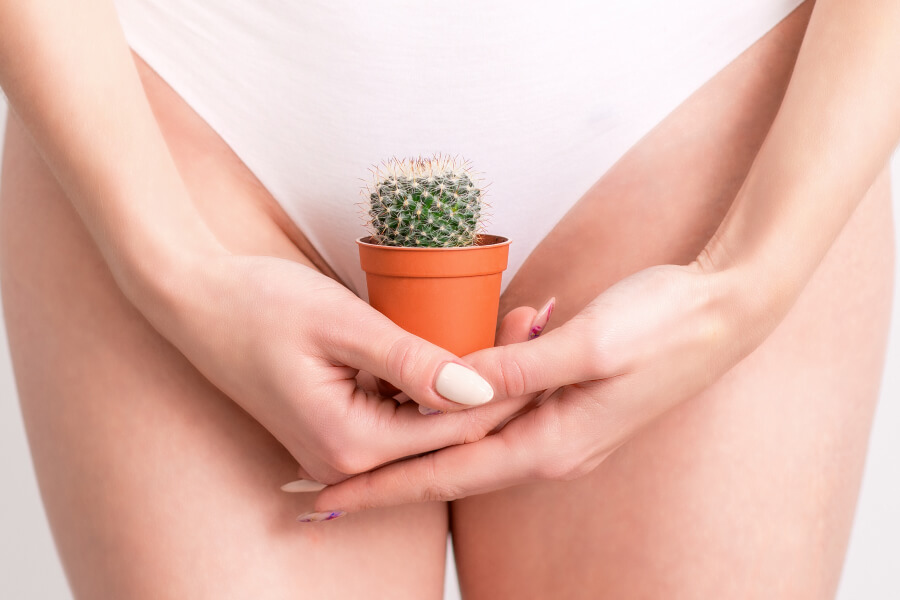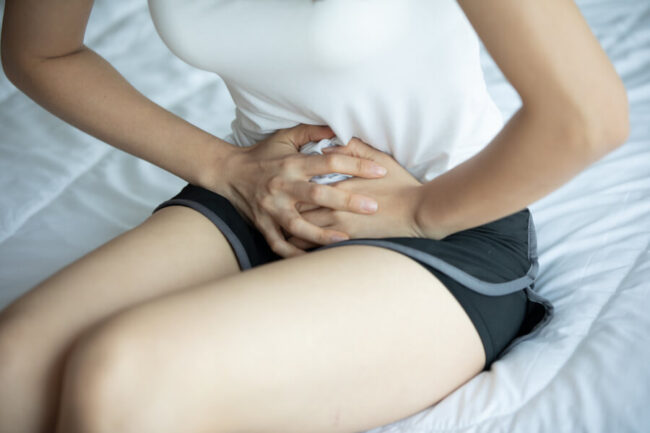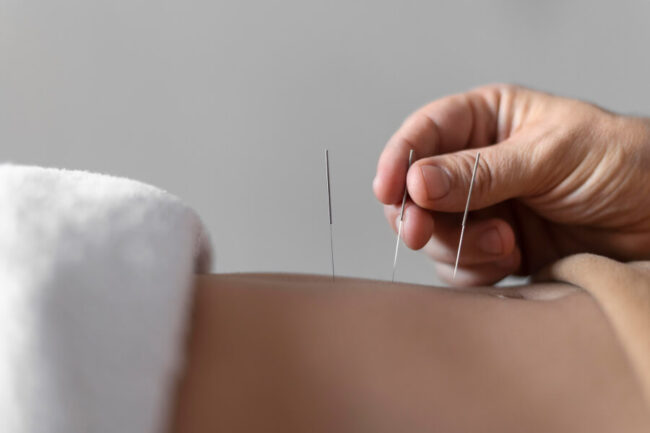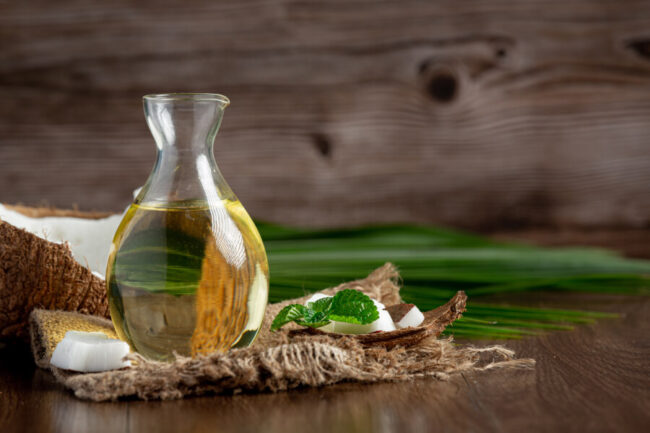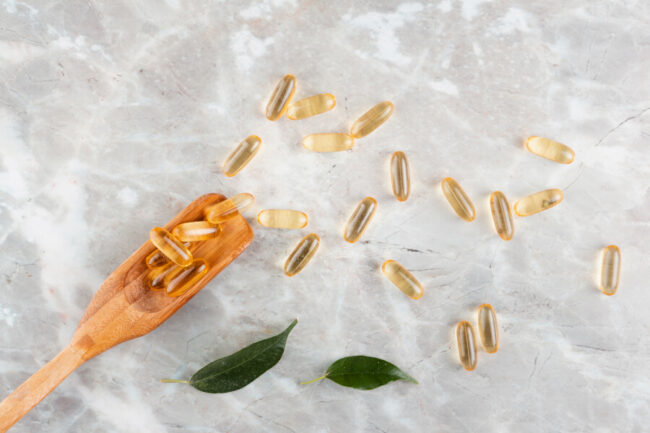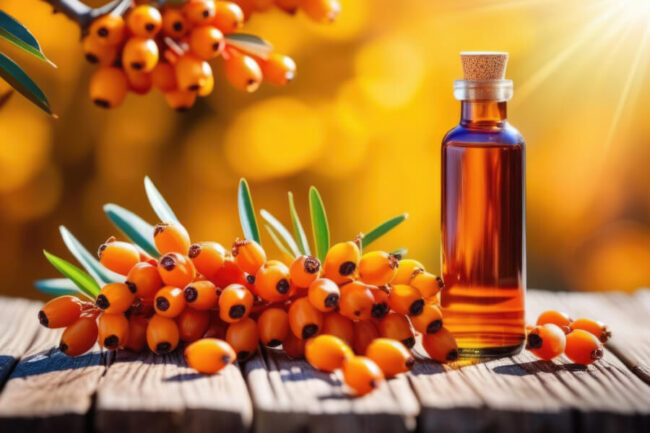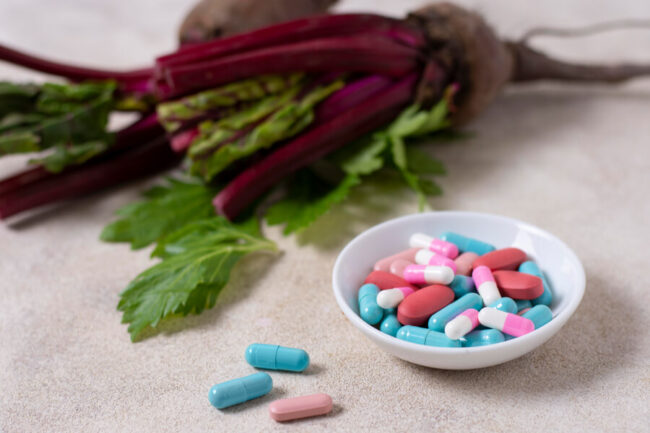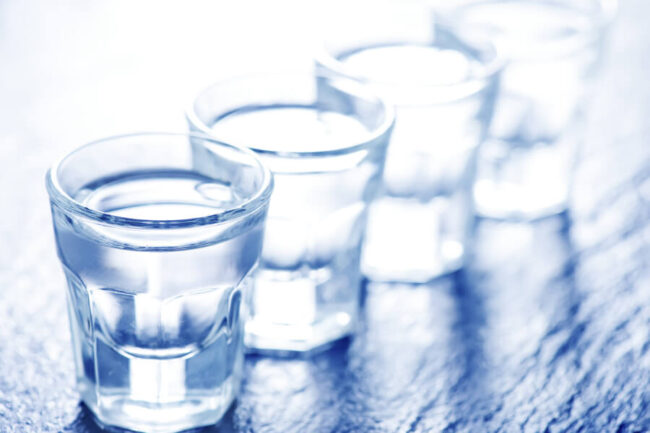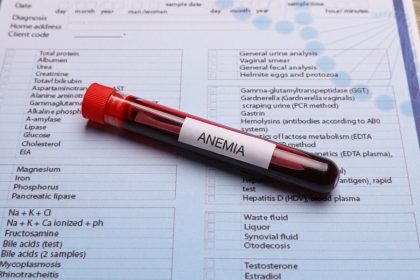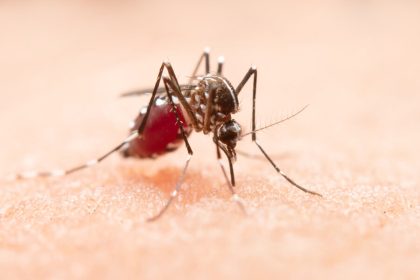Menopausal vaginal dryness is a significant milestone in a woman’s life, through the change in her life. While this transition is natural, it often comes with various physical changes and challenges not just among women in the 50s and 60s, and beyond.
Younger women then seek out natural remedies and solutions because of vulvar atrophy.
During this phase of life, your reproductive system gradually winds down. Once you go 12 months without getting a period, you’ve officially entered menopause.
For most women, this new stage of their lives triggers noticeable menopausal vaginal dryness. It can range from occasional itching to chronic discomfort that makes sexual intimacy painful. You don’t have to suffer from menopausal vaginal dryness.
How Common is Menopausal Vaginal Dryness?
Menopause dryness is more common than many realize. According to the North American Menopause Society, approximately 50% of postmenopausal women experience symptoms of vulvar atrophy.
Despite its prevalence, many women feel uncomfortable discussing these symptoms, leading to a lack of awareness and treatment. But to understand what it is and how to treat it is the first step of relief.
What Causes Menopausal Vaginal Dryness?
The primary cause of vaginal dryness in women during menopause is the decrease in estrogen levels.
Estrogen plays an essential role in maintaining the health and elasticity of vaginal tissues. So when estrogen levels drop, the vaginal walls then become thinner and less lubricated, leading to dryness, itching, and discomfort.
Other factors that also affect like: Stress, lack of sexual activity, certain medications, and underlying health conditions.
Why is Menopausal Vaginal Dryness Uncomfortable?
Menopause vaginal dryness does more than cause painful sex. To understand why, all you need to do is look at the science behind how women’s bodies work.
The vagina’s posterior glands are responsible for producing the natural dampness found in women. They are known by Bartholin’s glands. One of them is placed on either side of the vaginal entrance.
They keep the vagina healthy, eliminate dead cells, clean the vaginal tissue, and guard against infection.
When the glands don’t produce enough lubrication, vaginal tissue easily becomes irritated and more prone to infection. Having sex certainly increases those risks.
Common clothing decisions like jeans, panties, or underwear can literally make you feel uncomfortable in that area. Even simple body activities like sitting down or peeing can become excruciating if vaginal dryness develops into inflammation and infection.
Can Natural Remedies Relieve Menopausal Vaginal Dryness?
There are a lot of prescription medications that can end the vaginal dryness. Unfortunately, some of them can cause more problems than they fix, so many women prefer natural alternatives remedies to try. It won’t cost you anything and in every home.
Acupuncture
According to some studies, women who use acupuncture to treat vaginal dryness and irritation see encouraging results. According to acupuncture, every health issue is a sign of a generalized bodily imbalance (yin/yang). The restoration of natural moisture production is facilitated by restoring the balance.
There is no quick remedy for vaginal dryness with acupuncture. For optimum effects, if you decide to give it a try, you have to make a long-term commitment.
Coconut Oil
Coconut oil is a versatile remedy that acts as a natural lubricant and moisturizer at the same time as its antimicrobial properties help prevent infections.
You can apply coconut oil externally and internally to alleviate dryness.
How to Use:
- Use virgin coconut oil for the best results.
- Apply a small amount to the external vaginal area.
- For internal use, consider using a clean applicator to insert the oil.
Vitamin E
Vitamin E is important for maintaining skin health and elasticity. Applying this vitamin oil can help you restore moisture and reduce the symptoms of vaginal atrophy.
How to Use:
- Purchase vitamin E capsules.
- Puncture a capsule and apply the oil directly to the vaginal area.
- Use once daily for best results.
Sea Buckthorn Oil
Sea buckthorn oil is rich in omega-7 fatty acids, which are known to support mucous membrane health. This oil can help rejuvenate vaginal tissues and alleviate dryness.
How to Use:
- Take sea buckthorn oil supplements orally.
- Apply sea buckthorn oil directly to the vaginal area for added relief.
Calendula Cream
Calendula, also known as marigold, has anti-inflammatory and healing properties. Calendula cream can soothe irritated vaginal tissues and promote healing.
How to Use:
- Purchase a natural calendula cream.
- Apply a small amount to the external vaginal area.
- Use as needed to reduce irritation and discomfort.
Probiotics
Probiotics can help maintain a healthy vaginal flora, which is crucial for preventing infections and maintaining moisture balance. Consuming probiotics can support overall vaginal health.
How to Use:
- Eat probiotic-rich foods like yogurt, kefir, and fermented vegetables.
- Consider taking a daily probiotic supplement for additional benefits.
Hydration
Staying well-hydrated is essential for overall health, including vaginal health. Drinking plenty of water helps maintain moisture levels in all body tissues, including the vaginal area.
How to Use:
- Aim to drink at least 8 glasses of water a day.
- Avoid excessive caffeine and alcohol, which can dehydrate the body.
Dietary Adjustments
A balanced diet rich in phytoestrogens can help mitigate the symptoms of vaginal atrophy. Phytoestrogens are plant-based compounds that mimic the effects of estrogen in the body.
Foods to Include:
- Flaxseeds
- Soy products (tofu, soy milk)
- Legumes (beans, lentils)
- Whole grains
- Fruits and vegetables
Regular Sexual Activity
Engaging in regular sexual activity, including intercourse and other forms of sexual stimulation, can promote blood flow to the vaginal area, which helps maintain tissue health and elasticity. This natural remedy can be both enjoyable and beneficial for vaginal health.
How to Use:
- Prioritize intimate moments with your partner.
- Consider using natural lubricants to enhance comfort during intercourse.
Pelvic Floor Exercises
Strengthening the pelvic floor muscles through exercises like Kegels can improve blood circulation to the vaginal area and enhance overall vaginal health. These exercises are simple and can be done anywhere.
How to Use:
- Contract your pelvic floor muscles (as if stopping urine flow).
- Hold for 5 seconds, then relax for 5 seconds.
- Repeat 10 times, three times a day.
Essential Oils
Certain essential oils, such as lavender and chamomile, have soothing and anti-inflammatory properties. When diluted properly, these oils can provide relief from menopausal vaginal dryness and irritation.
How to Use:
- Dilute essential oils with a carrier oil (e.g., coconut oil).
- Apply the mixture to the external vaginal area.
- Use sparingly and discontinue if any irritation occurs.
Conclusion
Dealing with vulvar atrophy during menopause can be challenging, but it doesn’t have to be endured in silence.
Natural remedies offer a gentle and effective way to manage symptoms and improve vaginal health.
By incorporating treatments like aloe vera, coconut oil, and vitamin E, along with making dietary adjustments and staying hydrated, women can find relief and enhance their quality of life.
Remember, it’s always a good idea to consult with a healthcare provider before starting any new treatment, especially if symptoms persist or worsen.
FAQs
Can Vaginal Atrophy be Treated?
Yes, vaginal atrophy can be treated effectively. While hormone replacement therapy is a common medical treatment, many natural remedies can also provide significant relief. It’s important to find a treatment plan that works for you, whether it’s medical, natural, or a combination of both.
How is Vaginal Dryness Treated?
Menopausal vaginal dryness can be treated with both medical and natural remedies. Medical treatments include estrogen creams, tablets, and rings, which help restore hormone levels. Natural remedies focus on moisturizing and healing the vaginal tissues through the use of oils, creams, dietary adjustments, and lifestyle changes.
How Many Women Typically Experience Vaginal Symptoms?
Approximately 50% of postmenopausal women experience vaginal symptoms such as dryness, itching, and discomfort. Despite its prevalence, many women do not seek treatment due to embarrassment or lack of awareness.
Do You Need a Specialist?
While many cases of menopausal vaginal dryness can be managed with over-the-counter remedies and lifestyle changes, it is important to consult a healthcare provider if symptoms are severe or persistent. A specialist can provide a comprehensive evaluation and recommend the best course of treatment.

